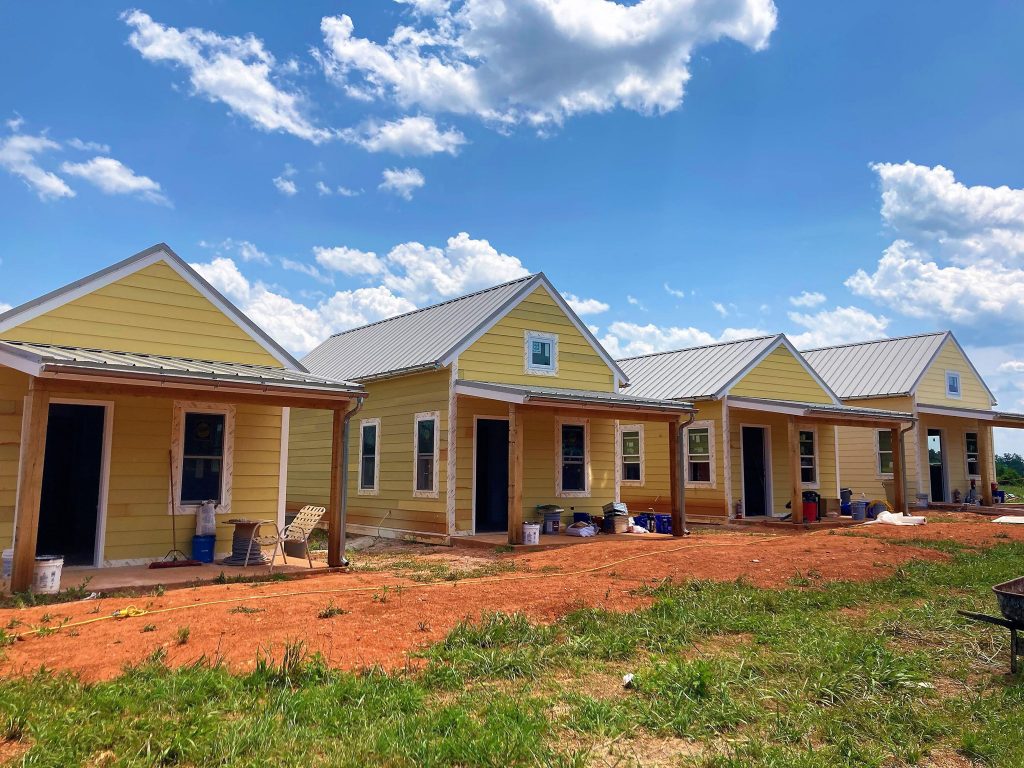Valor Farms Helps Veterans Reintegrate Into Society After Service

According to the Oxford Dictionary, the word valor means “great courage in the face of danger, especially in battle.” Veterans from all over the world exemplify what valor looks like as they have shown a great amount of courage through their service to their country.
But with this valor comes something else — something darker. Post-traumatic stress disorder (PTSD) is something that many veterans deal with after service. Consequently, according to the Disabled Veterans National Foundation, 6,139 veterans died by suicide in 2019. The suicide rate for veterans is 1.5 times greater than the rate for non-veteran adults.
Along with PTSD, more than 50,000 veterans face homelessness after service. Also, 3.8 million veterans suffer from a combat-related disability, making it difficult to find a job after serving.
Valor Farms, located in Altavista, Virginia, aims to alleviate these issues for veterans and help them get back on their feet. The farm intends to help prepare veterans for life after service through their upcoming program.
The first of its kind, Valor Farms is part of the National Center for Healthy Veterans and acts as a blueprint for the organization’s future programs.
A little over a year ago, a group of people had the idea to create a place where veterans and first responders suffering from PTSD could participate in a 12-month recovery program. In September of 2020, the group purchased the 340-acre land and named the place Valor Farms, and they got to work building the organization. While the building process has taken longer than expected, they are hoping to invite veterans to begin the program in 2021.
Jacob Corwin, the horse and livestock foreman, explained that sometimes veterans and first responders have a hard time readjusting to society after returning from service. Valor Farms provides a community where veterans can get the counseling they need to heal mentally, physically, emotionally, relationally and spiritually. Through that healing, Corwin explained, they want to prepare these veterans to be as successful as possible in the real world after the program is over.
“Right now, we are in the process of building 100 tiny homes,” Corwin said. “[There] will be a mix of single, couple and family housing.”
Currently, Corwin and the team hope to have the homes ready for the start of the program later this year. The tiny homes are being built in villages of 20 with a community center at the hub. Corwin explained the layout as “an inward facing oval” where all the houses face the courtyard. This allows the veterans to see their neighbors when they walk out the front door.
Each tiny house will be equipped with the basics, such as a kitchenette, shower, bed and living room. To promote community, Corwin said that they are building a communal kitchen where the residents can make full meals together. This is also the case for the gym and other amenities.

“We are trying to recreate the atmosphere of brotherhood that they had,” Corwin said. “Where they all had meals together, worked out together, did laundry together and stuff like that.”
Veterans interested in the program will go through a short process, starting with a referral from a trusted partner. Once through this step, veterans will go on to the application process. Once accepted, they will begin their journey to securing a successful profession, finding a healthy work-life balance and offering a positive contribution to the community.
Corwin said that a big contributor to the depression some veterans battle is financial issues. At Valor Farms, veterans will receive occupational training to help them rebuild their lives and careers once they complete the program. Valor Farms is partnering with many companies and local businesses to provide a multitude of opportunities. During the program, veterans can either work on the farm or for a local business.
Valor Farms is officially working with Liberty’s CSER department, providing opportunities for students to help out on the farm while also gaining community service hours.
In addition to CSER, the first and third Saturdays of the month are volunteer days. On these days, volunteers can be found doing just about anything, from picking pumpkins, putting up fence posts, cutting firewood and helping to construct the tiny homes for the future program. Due to a shortage in help, Corwin said that they can use all the volunteers they can get.
For more information regarding Valor Farms and its mission, you can visit www.healthyveterans.org.
Farmerie is a feature writer.
